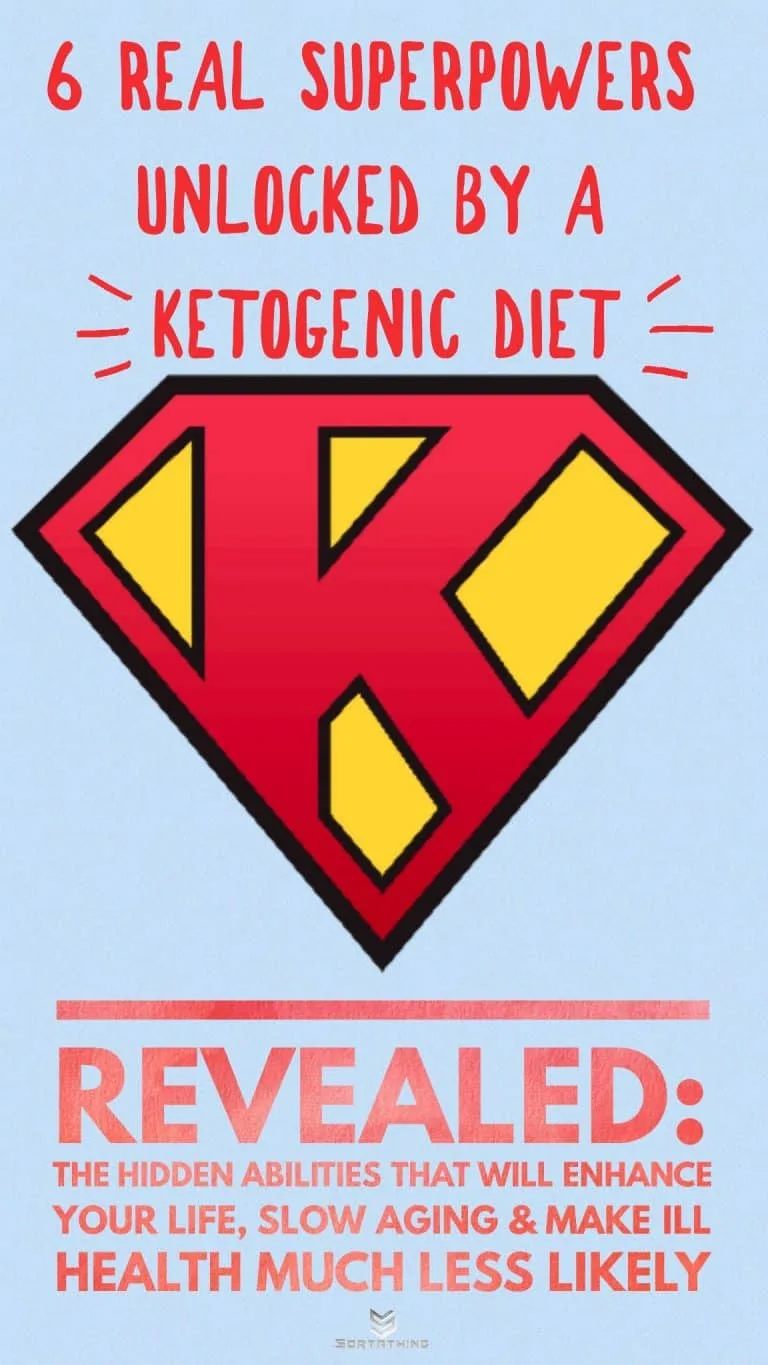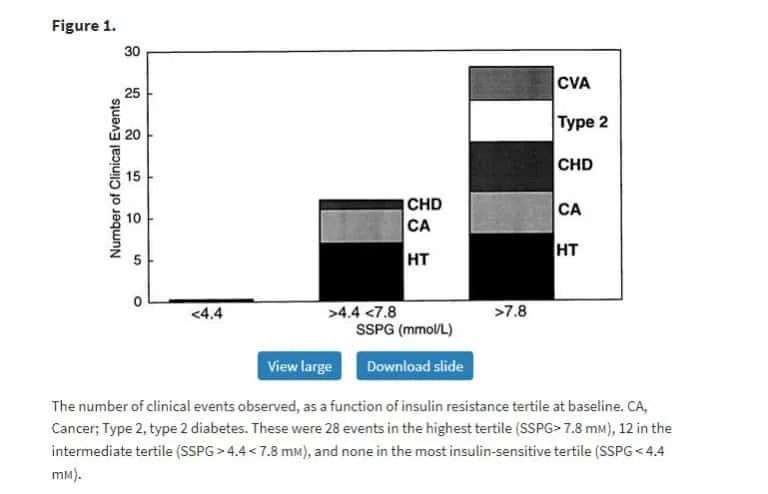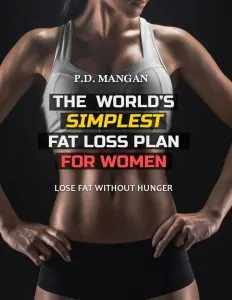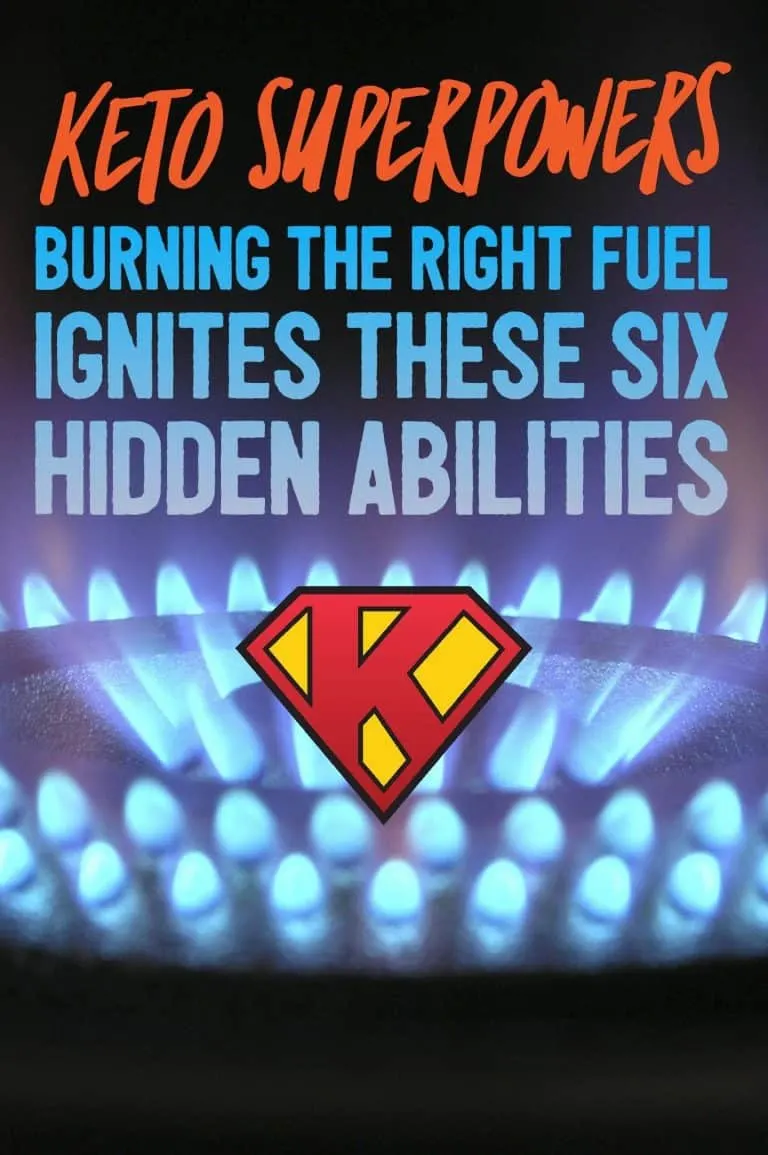 Is a “normal” diet Kryptonite for your health?
Is a “normal” diet Kryptonite for your health?
We’re always encouraged to eat plenty of “heart-healthy” grains, fruit, vegetables, maybe a little meat and very little saturated fat. What happens if you go against that advice and consume as much meat and fat as you want, but few carbohydrates? Mainstream thinking says you’ll hasten your death from cancer, stroke or heart disease. Scary.
But evidence to the contrary is mounting. More and more people are thrilled by the improvements they’ve seen in their health by cutting out the carbs. Meanwhile, researchers are slashing their way through decades of misinformation and discovering evidence showing us what’s really best to eat.
It looks like the Standard American Diet, consumed by millions, is not the healthiest option after all. In fact, it may deprive us of the fuel and nutrients our bodies really need.
So what happens if you put it right?
Eating a low-carb diet unlocks a secret biological boost mode. It unleashes dormant superpowers that will enhance your life, slow the aging process and make chronic health conditions MUCH less likely.
With a little discipline, it’s easy to access these superpowers. Our website is full of delicious low-carb and keto recipe ideas to help you on your way.
[elementor-template id=”6082″]
The six keto superpowers

Superpowers are defined as exceptional abilities. You can make yourself exceptional simply by avoiding the carbs and ultra-processed foods the most people eat all day, every day.
Eating a ketogenic diet low in both carbs and vegetable oils and feeding yourself once or twice a day is your best defense against dietary kryptonite that dulls your natural superpowers.
The power to unlock your body’s largest energy store
If you eat a normal diet – mainly carbs – your body fat is effectively locked off as a source of energy. And this store of energy is increased every time you eat. It’s a one-way street to Fatsville.
Each pound of body fat supplies enough energy for nearly two days. The average American man, carrying around 32 pounds extra fat these days, has at least enough body fat to survive two months without eating!
Turns out you can access these stores in a way that doesn’t require starving yourself or even being hungry.
By cutting the carbs your body switches to another fuel to power itself. Running your body on ketones (instead of glucose) springs the locks on your fat stores. This has many important consequences. The first is that you start to lose weight. Rapidly.
Eating low-carb gives you the power to liberate fat stored around your body. By running on fat instead of sugar you’ll also reveal your second superpower.
The power to overcome hunger
Dialling down hunger is how low-carb works as a viable alternative to a standard, carb-heavy diet.
If you eat more than is necessary to sustain you through the day, excess energy is stored away as fat. It’s not really a question of calories. It’s all about hunger. And this is why most diets fail.
Trying to lose weight by eating less is hard, hungry work. Few people can stick at it for long, and the weight piles back on as old habits return.
The trick is to lose weight by beating hunger.
But how is this even possible? Isn’t hunger between meals the most natural thing in the world?
Not really, no. It’s caused by hormones, not hard-wiring. And hormones can be controlled by eating the right things while avoiding the wrong ones.
Two hormones involved in hunger are insulin and ghrelin. Insulin also happens to be the very same hormone that adds to your fat stores and blocks their use.
Grehlin is produced as your stomach empties. It basically yells “fill me up!”. This happens more frequently on a diet of easily-digested carbohydrates. Fats and proteins muffle grehlin’s effect. Result, less hunger.
The ketones you burn instead of glucose also appear to suppress hunger. If your body senses ketones in circulation, it concludes you’re well fuelled and no further fuel is needed until the levels dip.
This frees yourself from the constant urge to snack. You spend less time thinking about your next meal and planning your day around eating. You eat less overall, store less excess energy as fat and have more time to go about your day.
Hunger & Intermittent Fasting
Being free of hunger makes skipping meals much easier too. Intermittent fasting is about only eating in a set period of the day. Maybe between 12 pm and 8 pm. This gives your body time to clear out junk and repair itself. This essential process is called autophagy and it’s strongly linked to longer life and better health.
Autophagy is itself a biological superpower weakened by eating too often. It also diminishes with age. Giving it a chance to do its work in your later years is an important way to limit the damage caused by aging.
The power to think clearly & elevate your mood
Ever had brainfade or a fogginess in the middle of the day? Cast off the weight of carbohydrate addiction and you’ll soar above the clouds in your mind. Get ready to enter a wide-open space of crystal clear thinking and limitless mental horizons.
Sharper thinking and mental clarity are one of the most common benefits reported by people on a ketogenic diet. It’s easier to focus, pay attention and be more productive. Ketones appear to be the smart drug we’ve all been looking for.
Many low-carbers also report that their mood improves. Depression and anxiety diminish or even disappear.
What could be happening here? How can what you eat determine how you think and feel?
The human brain has a big claim on your energy intake. At least 25% of your calories are used to keep your brain going, even when you’re sitting around doing or thinking about nothing much.
It used to be thought that the brain could only use glucose for its energy but it’s since been found that up to 75% of its energy can come from ketones. Indeed, the brain may even prefer this kind of fuel over glucose.
This is one of the most interesting aspects of low-carb, ketogenic diets. Could a high carbohydrate diet with unhealthy oils be Kryptonite for normal human cognition and happiness?
Could a ketogenic diet improve day to day thinking and mood while protecting against age-related mental decline? If so, this would be one of the most important superpowers a low-carb diet unlocks.
The evidence, in both human and animal studies, is mounting. It’s something we’re going to explore in greater detail in our new dedicated blog very soon.
The power to boost your speed, stamina & strength
The ketogenic diet has certainly become more popular in recent years, but it’s not a new thing. In fact, it may be a very, very old thing. Isotope studies of ancient skeletons point to diets that were very heavily reliant on meat and other foods that come from animals.
It may be that most or even all humans ran ketogenically before settled agriculture became the way our ancestors survived. Humans seem to have spent most of their time as a species that evolved to eat meat. It’s only in the last several thousand years of our 1 million-year evolutionary history that grains have become part of the daily diet.
What if humans don’t do as well eating bread, cakes, french fries and soda as they do on the foods we all evolved to eat? Shouldn’t we thrive by eating the foods we evolved to eat?
The US military seems to think so.
The Special Operations Command recently announced that they are researching the potential benefits of ketogenic diets for troops in extreme environments. They’re also looking at ways to induce the state without dietary changes – probably by using exogenous ketones.
“One of the effects of truly being in ketosis is that it changes the way your body handles oxygen deprivation, so you can actually stay underwater at depths for longer periods of time and not go into oxygen seizures,” Lisa Sanders, the director of science and technology at U.S. Special Operations Command, said at a conference in May 2019.
There is a long history of the world’s militaries using ketogenic diets to feed their troops. Genghis Khan’s hordes lived on meat, dried milk and even blood as they swarmed over much of Europe & Asia 800 years ago.
Pemmican was a staple foodstuff for the British and American Army around one hundred years ago. Many polar expeditions were fuelled by pemmican, which consists entirely of lean meat and fat, and it was produced by the ton.
The arctic explorer Vilhjalmur Stefansson wrote in detail about the Inuit’s carbohydrate-free diet. They would eat only meat and fish for six to nine months of the year. He noted how the Inuit were free of many of the diseases of civilisation as well as tooth decay. He went on to spend a year under close observation eating only meat, with no ill effects.
Chris McDougall’s Natural Born Heroes documents how Cretan partisans were able to perform incredible feats of endurance when defending their island against Nazi occupation on very meagre rations that were mainly made up of fat. He also explores the role of a fat-burning metabolism in extreme endurance sports.
A landmark study by Jeff Volek in 1983 examined the effect of nutritional ketosis on a small group of elite cyclists. After an initial wobble in the first two weeks when the study was nearly abandoned as the cyclists struggled to adapt to their new diet (carbohydrates cut to 20 grams per day), overall performance improved.
A decline in performance in the early days of adapting to a ketogenic diet has been observed often. Stephen D Phinney’s 2004 paper on Ketogenic diets and physical performance is a great summary of the background and studies of the diet, as well as its pros and cons.
Jeff Volek and Stephen Phinney later collaborated for their seminal book The Art and Science of Low Carbohydrate Living: An Expert Guide to Making the Life-Saving Benefits of Carbohydrate Restriction Sustainable and Enjoyable.
Ketogenic diets really do give some athletes superhuman stamina that is not accessible on a regular, carb-heavy diet. No wonder the military is interested.
The power to shake off insulin resistance
Every time you eat carbohydrates your body produces a hormone that battles to control the sugar in your blood. It works hard to turn it into fat and store it around your body. This is the basic mechanism of how all of us gain weight and become fatter.
However, the body needs to produce more and more insulin to have the same effect. It gets to a point where your less able to control the sugar in your blood. And that can escalate into Type-2 diabetes where insulin has to injected, or carbohydrates avoid completely.
Alternatively, avoiding carbohydrates in the first place means insulin resistance and Type-2 diabetes never develop. Incredibly, much of the medical profession doesn’t seem to have picked up on this. But, nonetheless, many Type-2 diabetics are finding this information, acting on it and waving goodbye to the condition and all the serious health conditions that come along with it.
But what about people who are not diabetic? Is insulin resistance still a problem. Does it matter? Seems to matter a lot.
Back in 2001, a team of researchers at the School of Medicine in Stanford, California reported what they found in a group of 208 men and women with an average age of 50 years.
They tested the for insulin resistance and divided the subjects into three groups with low, medium and high results. They then followed their progress for between 4 and 11 years and recorded how many developed cancer, stroke, high blood pressure, Type-2 diabetes and coronary heart disease.
Here’s a graph showing which diseases individuals in each of the three groups developed, lowest insulin resistance on the left, highest on the right.

Insulin resistance graph – those with the lowest level of insulin resistance succumbed to the fewest clinical events. From: Insulin Resistance as a Predictor of Age-Related Diseases – Francesco S. Facchini, Nancy Hua, Fahim Abbasi, Gerald M. Reaven
NONE of the people in the lowest insulin resistance group developed any of the diseases and there were no deaths. There were twelve “clinical events” in the middle group with two deaths. Twenty-five people in the group with the highest insulin resistance developed one or more diseases and there were four deaths. You can see the original research paper here.
This is evidence that insulin resistance is bad news for your long-term health and should be avoided. A good way to avoid insulin resistance is to limit the carbohydrates and ultra-processed food in your diet.
When it comes to dodging bullets of diseases which kill millions every year, not being insulin resistant is a superpower.
The power to slow down time
None of us getting any younger but people do appear to age at different rates. One person in their fifties can look like they’re in their seventies. Another person the very same age might be mistaken for someone in their thirties. We’ve all seen it. A large part of that is due to a combination of genetics, stresses and strains of life, disease, even lighting.
There’s only so much control you have over factors like that but there is one factor that you have absolute control over: what you put in your mouth when you eat.
All these superpowers – losing body fat, beating hunger, thinking more clearly and positively, being stronger and avoiding insulin resistance – will help you live longer and better into old age.
It is not inevitable that growing older means putting on weight and collecting more diseases and medications to hide their symptoms. In fact, it is possible to slow down the aging clock significantly, even reverse it up to a point.
For example, here I am, at age 45, fitter, lighter, stronger and much more positive about growing older. The inevitable decline used to be something I worried about. Now I don’t. I’ll be fine.
Evidence is growing that following a low-carbohydrate, ketogenic diet actively fights aging at a biochemical level. Ketones appear to be cellular messenger molecules that mimic fasting in that they activate anti-aging genes. The fuel most people use, glucose, definitely isn’t and your body uses insulin to bale it out as quickly as possible to prevent cellular damage.
And simply not eating all the damn time outside a set window of feeding – maybe eight hours each day or maybe even one meal a day (OMAD) – gives your cells an opportunity to clear our accumulated junk.
Many diseases linked to aging appear to be inflammatory conditions and avoiding junk, ultra-processed food and toxic cooking oils limit unnecessary inflammation.
If you have an open mind, willingness to go directly against mainstream nutritional advice and the patience to give your body a chance to undo decades of damage, you will discover hidden superpowers that were lying dormant all the time.
Other potential superpowers that need more research
All of the above superpowers have been or are currently being researched intensively. There are others that are more anecdotal. People following a low-carb diet are reporting all of the following.
Some will be down to genetic factors that not all of us share, others will be wishful thinking. Others could warrant additional research into new ways to escape problems that we thought were inevitable.
- Wounds healing more rapidly
- Resistance to sunburn – this is something I have experienced myself
- Improved dental health
- Clearer, healthier skin – psoriasis and acne
- Serious psychiatric conditions improved or reversed
The ketogenic diet could also mean you’re less likely to take over the cabinet medication, which can be unhealthy over a long period. For people looking to get pregnant, this could mean you’re less likely to have complications during pregnancy. You can find out more about such a problem at ActionMatters.org. Not only that, but the Ketogenic diet is suitable for short term yet rapid weight loss, which is good for shedding a few pounds and putting your health first before you conceive.
Conclusion – exceptional powers require exceptional food
What if the ketone-depriving diet we’re raised on causes many of the physical and mental health problems we take for granted as part of human existence?
There’s no doubt high-carbohydrate diets and ultraprocessed foods are a profitable way to create and feed huge populations of humans on a global scale. But at what cost to individual health as well as the health and sustainability of our societies?
Fortunately, we each still have the power to choose what we eat, despite the constant pushing of cheap and nasty food that makes us sick while wanting more. It’s never too late to change as long as you’re living and breathing.
You can choose to eat your fill from the same feeding trough as everybody else, or stop, raise your head and walk away from the battery farm to see what else is cooking.
Can anyone follow a ketogenic diet?
No. There are a number of metabolic and more general health conditions which definitely rule out a ketogenic diet. If you’re in any doubt its suitability for you, you should always check with a sympathetic physician before going all in.
We were preparing this article when this tweet popped up in our timeline which nails the argument:
Sugar, grains, and seed oils are the kryptonite of the human race.
— P. D. Mangan 🇺🇸 (@Mangan150) July 11, 2019
 P.D. Mangan has earned a reputation for digging out 24-carat nuggets of life-saving medical information that have been overlooked (or purposefully ignored).
P.D. Mangan has earned a reputation for digging out 24-carat nuggets of life-saving medical information that have been overlooked (or purposefully ignored).
As well as his Twitter account with 60,000 followers (and counting) and his popular Rogue Health & Fitness website, he’s also written a number of books and courses.
Topics range from the role of Iron in ill health, intermittent fasting, autophagy, and the benefits of strength training, whatever your age or sex.
Most recently, he’s created a comprehensive Anti-Aging webinar course. Diet, exercise, alcohol, body composition and a few other things that might surprise you are all covered in detail.
Actionable, evidence-based advice to take away and help build an active life you’ll enjoy long into the future.
Taken together, his work presents the latest and greatest information on nutrition, health and fitness. His work helped inspire us to start this blog. We urge you to check him out.

 Is a “normal” diet Kryptonite for your health?
Is a “normal” diet Kryptonite for your health?
